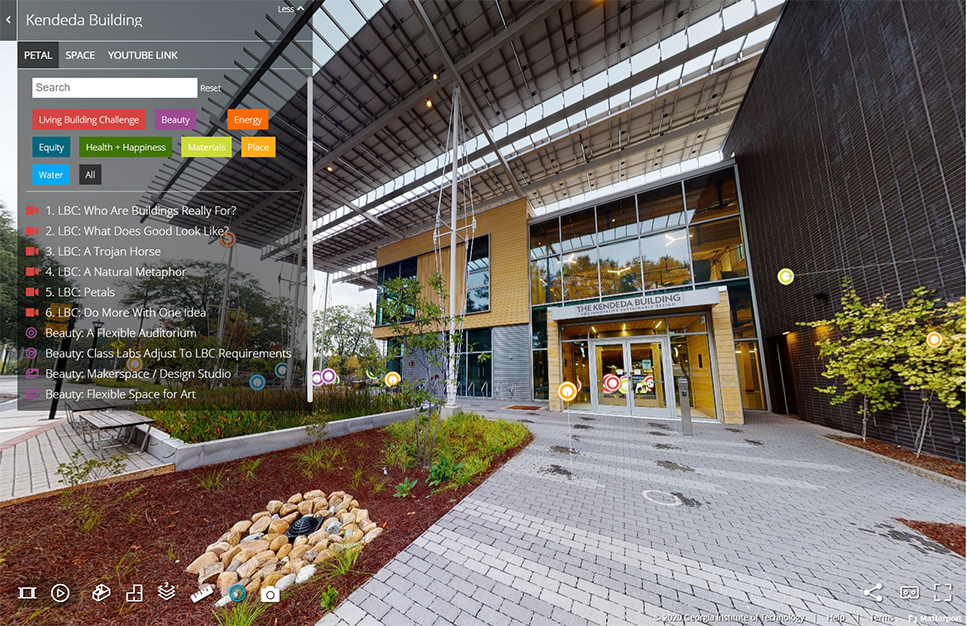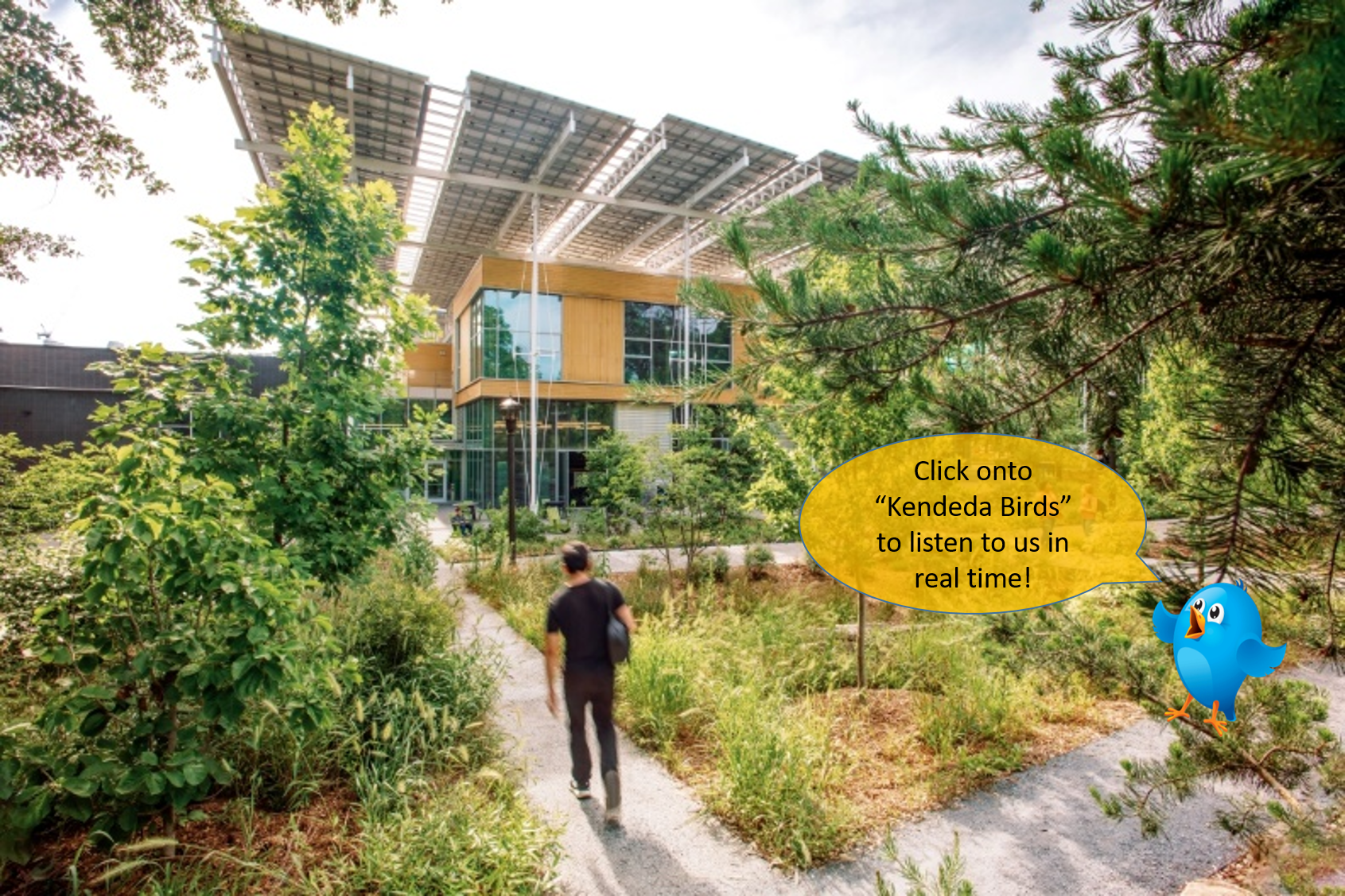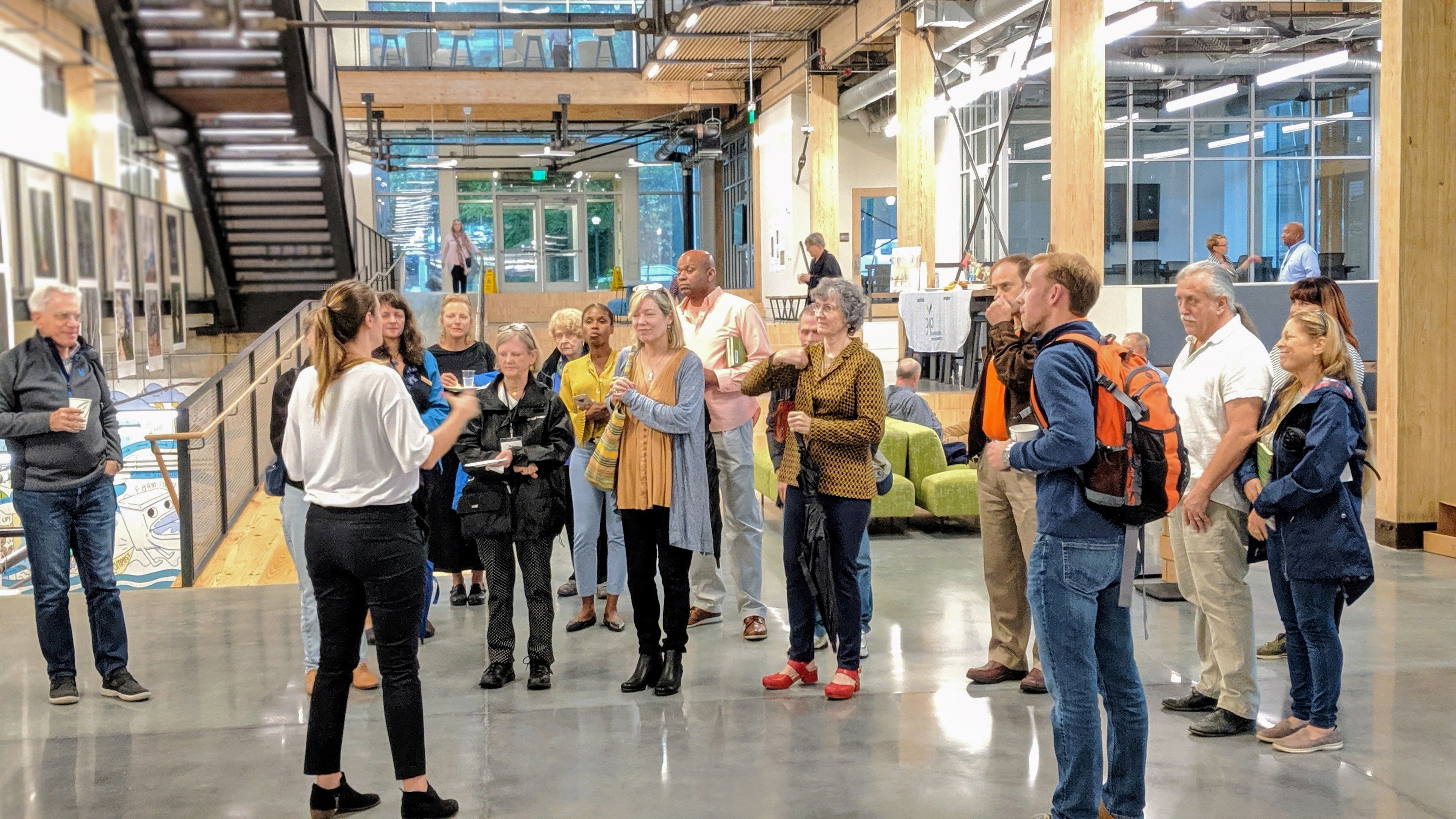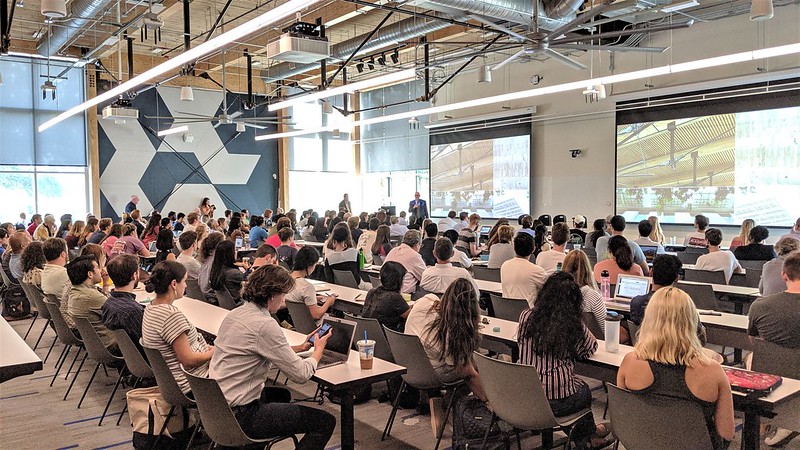
Tours
Seeing is believing. Almost 10,000 people have already experienced the southeast United State's first Living Building.
- Please book tours at least two weeks in advance.
- Please watch amazing video tour prior to in-person tour.
Featured Social Media Post
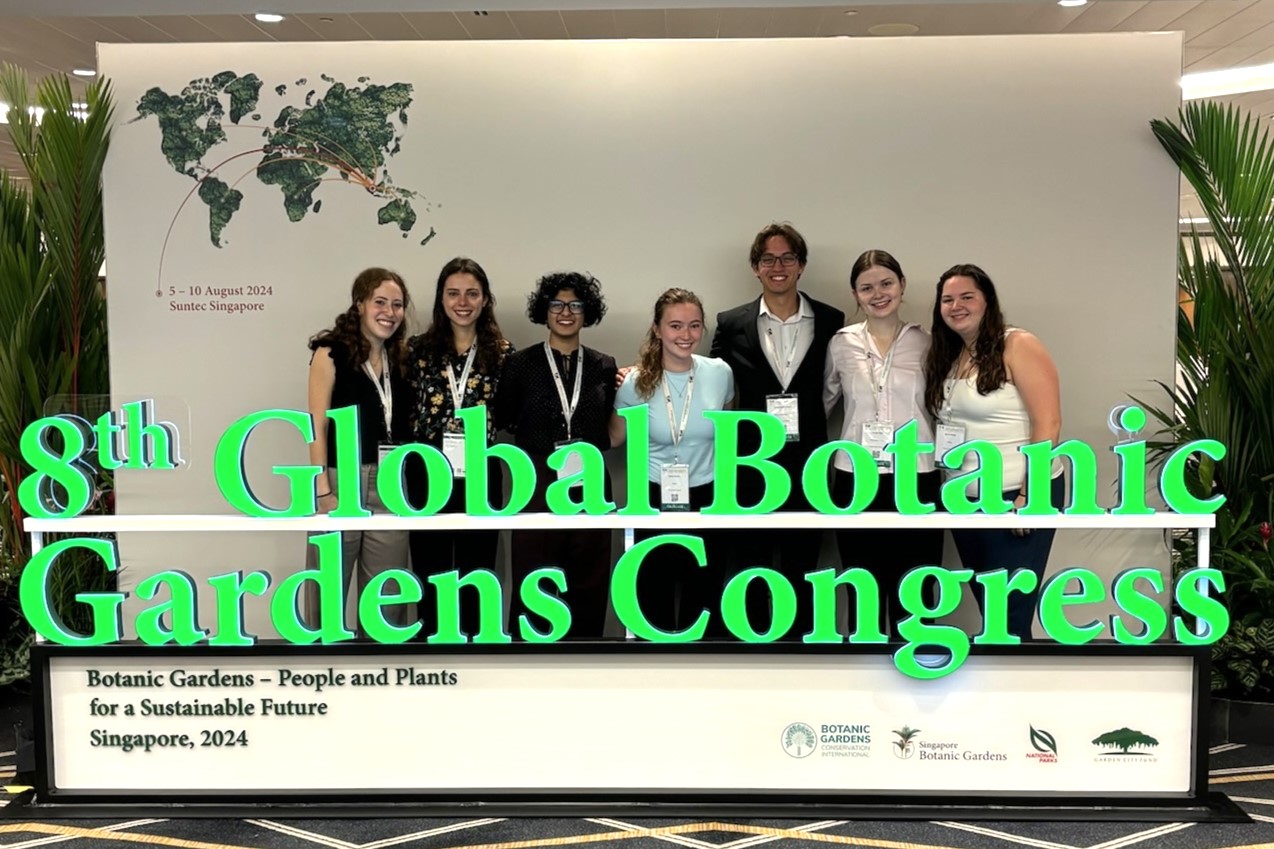
Members of Students Organizing for Sustainability's Urban Agriculture project, who tend to The Kendeda Building rooftop garden, at the 8th Global Botanic Garden Congress in Singapore on Sep. 6, 2024. They are presenting research on campus gardening.
Featured Article
Designing for a Greener Future. To continue to reduce their carbon footprints and meet their climate commitments, schools and universities should pay greater attention to the embodied carbon in their facilities.
Featured Podcast
SSDN's Green Minds: Kendeda Fund Part 1 on Regenerative Design
Reserve Space
Click here to see the building's calendar. The Kendeda Building is primarily a classroom/classlab.
- The schedule of the building is unknown past the current semester.
- Please adhere to our Living Building guidelines.
Spring and Fall Semester 2023: open to all Monday - Friday: 7:00am to 10:00pm
Weekends: closed
Video Tour
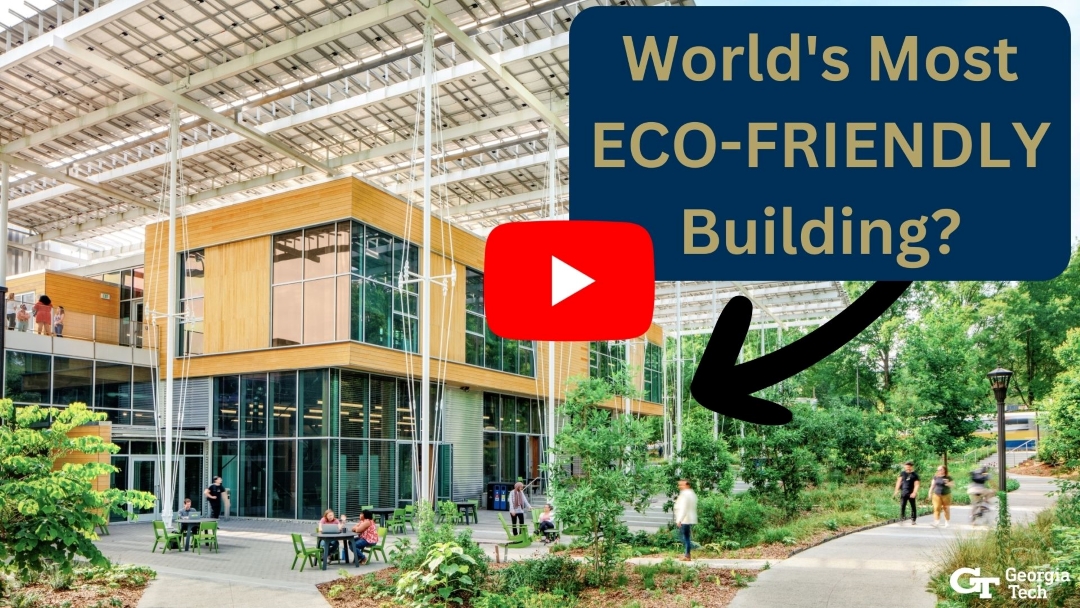
Key Living Building Details
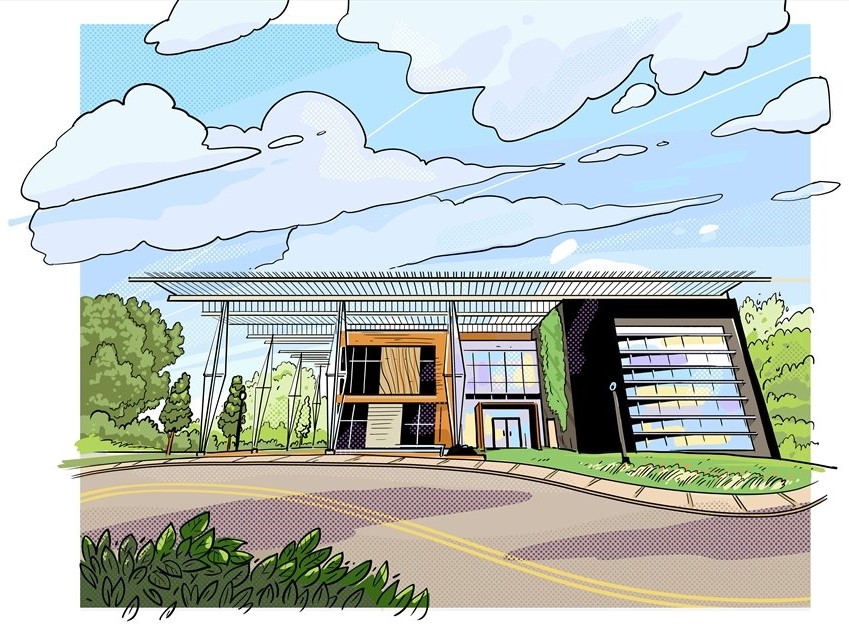
3D Tour
